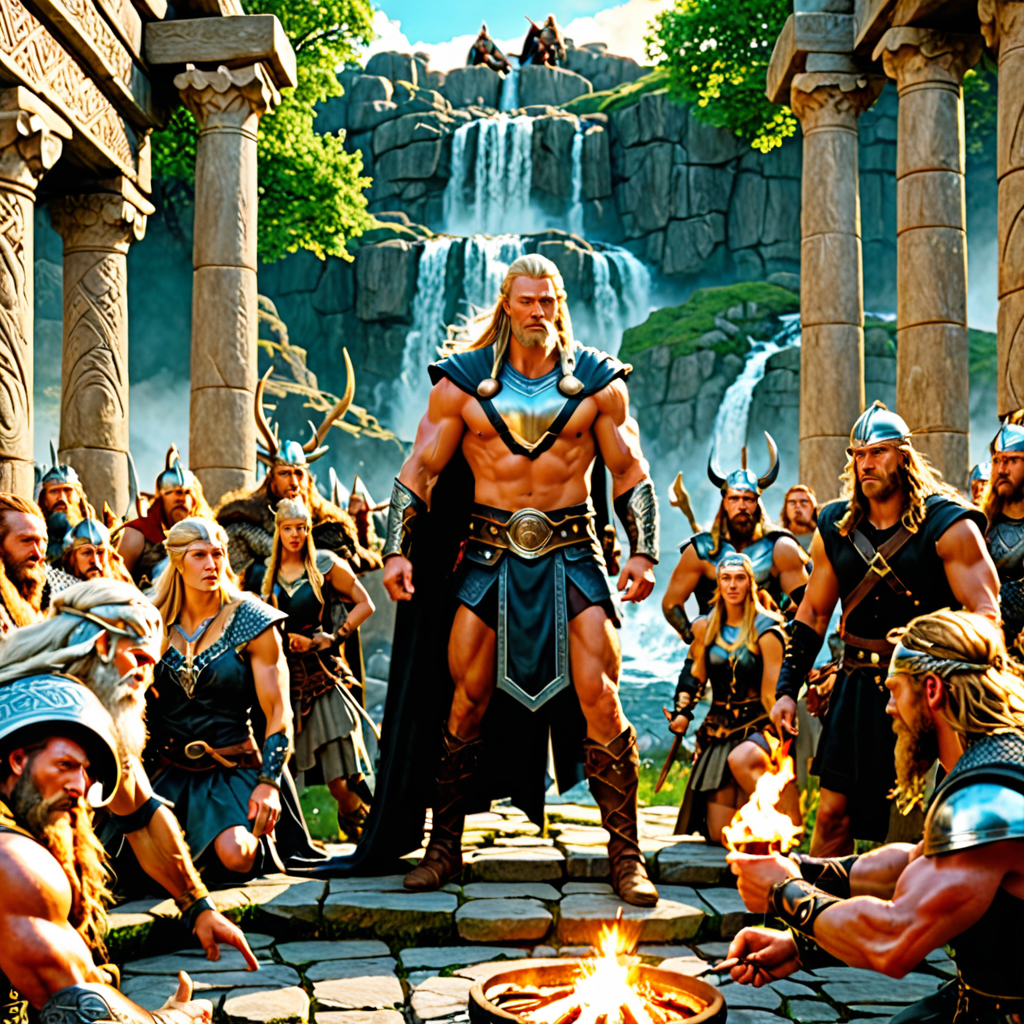The Role of Poetry and Storytelling in Preserving Norse Mythology
In Norse mythology, the oral tradition of storytelling and the art of poetry have played pivotal roles in preserving the rich tapestry of myths, legends, and deities that form the core of the Norse belief system. Through epic poems, sagas, and songs, ancient Nordic cultures passed down their traditions, values, and cosmology from one generation to the next. Let us delve into how poetry and storytelling helped safeguard the essence of Norse mythology.
1. The Power of Verse in Tribute and Transmission
Poetry held a special place in Norse society as skalds, or poets, served as not only entertainers but also as keepers of history and lore. The poetic form, characterized by alliteration, metaphor, and kennings, allowed bards to recount the intricate tales of gods, heroes, and monsters with rhythm and reverence. Through poems like the Edda and the Sagalitterature, Norse myths were immortalized in verse, ensuring their perseverance through the ages.
2. Storytelling: A Living Tradition
Storytelling was a communal activity in Norse culture, where tales of triumph, tragedy, and divine intervention were narrated around firesides and feasts. Skilled storytellers wove intricate narratives that brought to life the exploits of Odin, Thor, Loki, and other iconic figures of Norse mythology. Through this oral tradition, stories were embellished, adapted, and passed down through generations, allowing for a dynamic and evolving mythological landscape.
3. Symbolism and Syncretism in Norse Poetry
Norse poetry was not merely a collection of stories but a repository of symbolic imagery and metaphors that encapsulated profound philosophical and spiritual concepts. Poets used symbolism creatively to convey complex ideas about fate, honor, loyalty, and the natural world. Additionally, Norse poetry showcased a unique blend of indigenous Germanic beliefs and influences from other cultures, reflecting the dynamic and syncretic nature of Norse mythology.
4. The Enduring Legacy of Norse Mythological Literature
While Norse mythology underwent transformations with the passage of time and the influence of Christianization, the legacy of poetic and storytelling traditions endured. Today, thanks to the manuscripts and texts preserved from the medieval period, we continue to unravel the mysteries of Norse cosmology, symbolism, and worldview. The profound impact of poetry and storytelling in preserving Norse mythology resonates through contemporary adaptations in literature, art, and popular culture.
FAQs about The Role of Poetry and Storytelling in Preserving Norse Mythology
What is the significance of poetry in preserving Norse mythology?
Poetry, especially in the form of sagas and Eddic poems, played a crucial role in preserving and passing down Norse mythology. These poetic compositions helped keep the myths alive through oral tradition, ensuring that future generations would continue to hear these tales.
How did storytelling contribute to the preservation of Norse myths?
Storytelling was a fundamental aspect of Norse culture, with skalds (poet-bards) and storytellers recounting the exploits of gods, giants, and heroes. By weaving these narratives into their storytelling, they not only entertained but also educated listeners on the rich tapestry of Norse myths.
Why were poems and stories essential in transmitting Norse mythology?
Poems and stories were vital in transmitting Norse mythology because they provided a memorable and engaging medium through which the myths could be shared. Through the power of poetic language and storytelling techniques, complex mythological tales were made more accessible and easier to remember for future generations.



